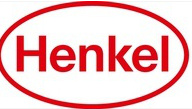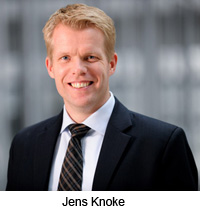Home » Viewpoints » Columns » GLOCAL Shoppers 'Perspective' Global Understanding with local implementation
GLOCAL Shoppers 'Perspective' Global Understanding with local implementation
By N Jayalakshmi | February 02, 2013
Does a specific shopping behavior prevail in each country or are there similarities across the continent? Since 2010, Henkel has conducted an international study addressing these and other questions, interviewing over 13,000 consumers in 19 countries about their shopping behavior.
 The overall trend is that despite a number of differences, three characteristic types of shopper can be identified in all countries: Economizers, Valueseekers and Carefree Shoppers. Read on to know more about this interesting study
The overall trend is that despite a number of differences, three characteristic types of shopper can be identified in all countries: Economizers, Valueseekers and Carefree Shoppers. Read on to know more about this interesting studyThe Study
With reference to a study from the USA, since 2010 Henkel has conducted some 13,000 interviews with consumers from a breadth of European countries, designed to cast light on the entire shopping process from planning through to the final decision to buy. The interviews, which lasted between 60 and 90 minutes, provided almost 16,000 hours of shopper comment. In other words, Henkel spent nearly two years in dialogue with consumers - around the clock. The shopper study was initially focused on Europe, but Henkel has since expanded it beyond European borders; it has now been carried out in 19 countries. To date, consumer behavior has been surveyed in the following nations: Germany, Netherlands, Spain, France, Italy, Belgium, Austria, Hungary, Czech Republic, Poland, Greece, Portugal, Serbia, Slovenia, Turkey, Croatia, Bulgaria, Russia and Mexico. Three additional countries will follow in the coming months.
The survey took account of all products in everyday use, with special emphasis on products in the segment covering washing agents, cleaning supplies and detergents. With the aid of statistical methods, the market researchers analyzed the shoppers' responses in order to ascertain general factors that exert a particular influence on consumer behavior. Using the findings, the shoppers were subdivided into clearly defined groups. The results of the country-specific analyses revealed that there are three groups with comparable attitudes to shopping in all countries included in the survey: Economizers, Valueseekers and Carefree Shoppers.
 Jens Knoke, Corporate Director International Sales Unit at Laundry and Home Care, Henkel, comments "By carring out this study, Henkel developed a very sound base for a superior Shopper Marketing process. This process will be rolled out to further countries and regions in the world. It will be enriched and further developed in the future. "
Jens Knoke, Corporate Director International Sales Unit at Laundry and Home Care, Henkel, comments "By carring out this study, Henkel developed a very sound base for a superior Shopper Marketing process. This process will be rolled out to further countries and regions in the world. It will be enriched and further developed in the future. "The Result
Intense research identified three distinct shopper types:
1) Economizers: The motto "As cheap as possible†defines the shopping behavior practiced by the Economizers, who are distinguishable by their strong focus on price. Overall, Economizers regard buying products for everyday use as more of a necessary chore than an enjoyable activity.
2) Valueseekers: They enjoy shopping and engage in it regularly. They are primarily concerned with locating products offering the best value for money, and they plan their shopping in detail to ensure this. There are two types of Valueseekers:
- Enthusiastic Valueseekers- This category shopper like to go shopping and do so often
- Promo Valueseekers- They are shoppers who are constantly seeking out promotions and special offers
3) Carefree Shoppers: What is crucial for this group is uncomplicated shopping. For them, price plays a much less important role, both as opposed to quality and when compared to the other groups.
4) Three international shopper types
Specific clusters in individual countries
Besides the common shopper clusters found in all countries surveyed in the study, there are a number of specific types of shopper found in individual countries. As an additional group, Mainstreamers were identified in Italy and the Netherlands. They predominately buy products that they already know. They do not spend much time looking for information, but instead exhibit habitual shopping behavior, with quality and price playing an equally important role. Info-rational Shoppers are the predominant cluster in France and Mexico. Their purchase decisions are based on the notion of "What is the best that I can get for my money?†They gather extensive information and plan their shopping in detail, paying particular attention to special offers. The Habituals group is an additional cluster in Croatia. They gather virtually no information and are not open to new products. Instead, they purchase familiar products from their preferred shops as a matter of habit. Enjoying Price-Seekers are a group specific to Greece. They enjoy buying their preferred products, but always ensure that they are as low priced as possible. Pioneers, who are always on the lookout for new products, are a country-specific cluster in Hungary and Bulgaria.
CONCLUSION
Although comparable shopping behaviors were observed across all countries surveyed, there are large differences with respect to the significance of the international clusters in the individual nations. The study revealed that, despite similarities, there are also significant differences in shopping behavior and attitudes to shopping as an activity in the various countries. Reasons for this include differences in the structural conditions that prevail and in the density of stores, as well as in consumers' fundamental attitudes and outlook on life. It is therefore important that retailers and industry are familiar with both international and local behavior patterns and attitudes to shopping. These patterns and attitudes may be used as the basis for defining marketing and sales measures, enabling them to be addressed more effectively and efficiently to the target shopper groups.
The study is particularly important on two counts: firstly, it also examined how strongly the individual types of shopper respond to specific marketing measures implemented by retailers. For instance, the Valueseekers cluster is very interested in test results and any promotional or marketing measures that are offered to them. This group is predominantly female. The price- and discount-focused Economizers are highly responsive to conventional special offers. They mainly buy branded consumer goods if they see products promoted in flyers at particularly low prices. Secondly, not only are the results broken down at the country level, they are also available for every relevant retail company operating in each country.
The findings can therefore be used to derive specific recommendations for each retailer and sales channel with respect to the marketing tools they use.
About Henkel Founded in 1876, Henkel holds globally leading market positions both in the consumer and industrial businesses with well-known brands such as Persil, Schwarzkopf and Loctite. In India, Headquartered in Mumbai, Henkel is the market leader in adhesives, sealants and surface treatments for consumers, craftsmen and industrial applications. It has a long tradition of a well balanced portfolio of international, regional and local brands.
Advertisement
Related Viewpoints
Advertisement


_165_265.jpg)
_165_265.jpg)





Comments